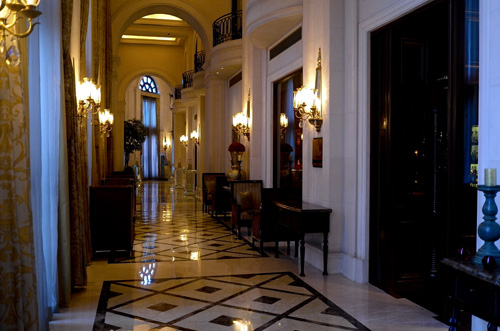• All hotels provide toiletries. Leave the shampoos and soaps at home.
• Toilet bags look nice, but they tend to be bulky and take up lots of space. Consider downsizing your toiletries and packing them in ziplock bags. It takes up less space and it packs flat.
• Smart travellers plan to wash their clothes on longer trips. This is one of the major secrets to travelling light. There are three options. Do the laundry yourself in the sink of your hotel room (works well with socks and underwear), use the hotel laundry service or look for an external laundry service in the neighbourhood.
• Stick to clothes with solid colors and avoid patterns. It is easier to mix and match solid colors.
• If your travels involve both casual and more formal events, black is a good color.

• Take half-used rolls of toothpaste and other toiletries with you. It takes up less space in your luggage and you can discard them before returning home. Just to be safe, however, it is a good idea to roll up the tubes of toothpaste so that over-zealous US custom agents don't attempt to claim that they are over the alloweable size limit.
• A very useful tool when you travel is the world time zone map. It will help you keep track of time in different time zones.
• A small sewing repair kit, earplugs and a first aid kit are always useful when travelling. So are flashlights that fit around the head. These so-called head flashlights are good for hands-free bedtime reading and for unexpected power outages, which are common in many developing countries.
• Studies have shown that most damage to luggage is caused by rough handling at airports. Nylon zippers in particular can be damaged when they scrape along a luggage carousel. Your luggage is much less likely to get lost/stolen if you carry it.
• Before leaving home, empty your wallet/purse of anything you will not need at your destination. This lightens your load and also provides additional security in case your wallet/purse is ever lost or stolen when you travel.
• Pay particular attention to the width of your suitcase. Many airplanes (and most trains in Europe) now have narrow aisles. A narrow/tall suitcase (with wheels) is better than a wide/short suitcase as it makes it possible to negotiate those narrow aisles.
• If you have extra room in your suitcase on your outbound trip, consider packing some toilet paper. It is light and cheap and acts as a good shock absorber so that your clothes don’t go sloshing around the inside of your suitcase. You might even want to use it on your travels. The same goes with packing some snacks from home.
• The one thing you do not want to have to buy on your travels is underwear. Most people are surprised to find that in our global world, underwear is still very regional. It is the ultimate cultural item. So unless you are prepared to suffer from itchy, scratchy, poor fitting underwear, pack lots from home.

